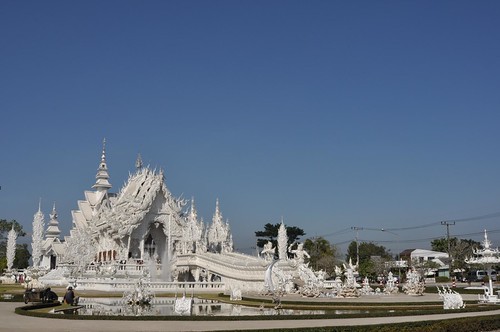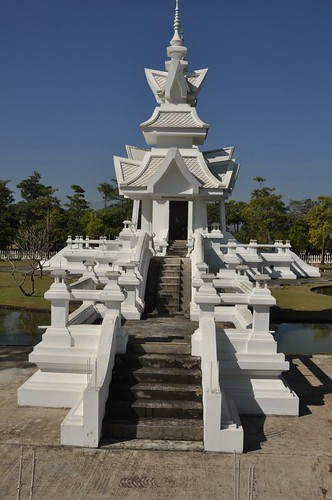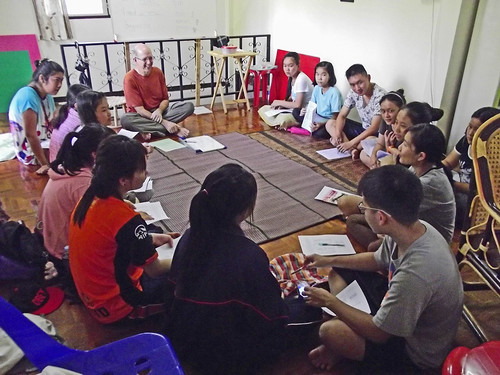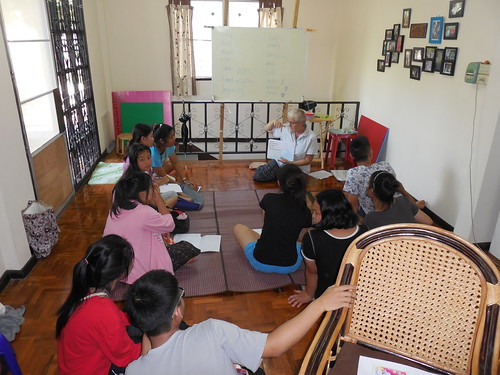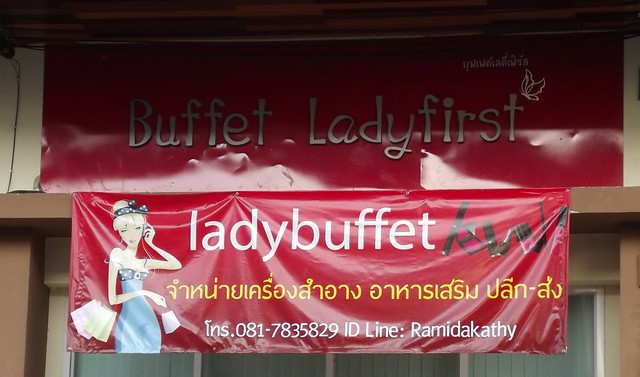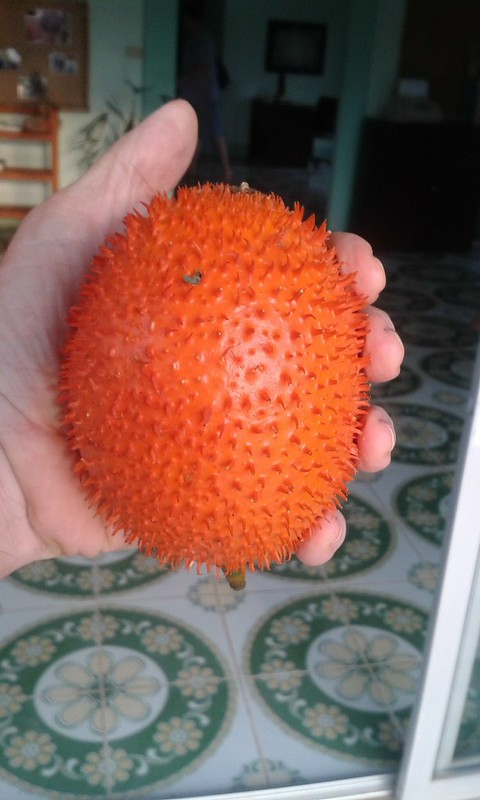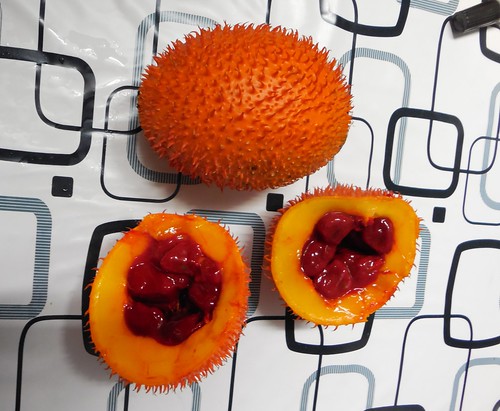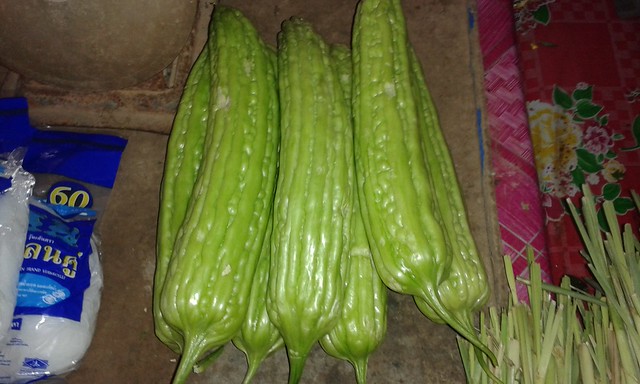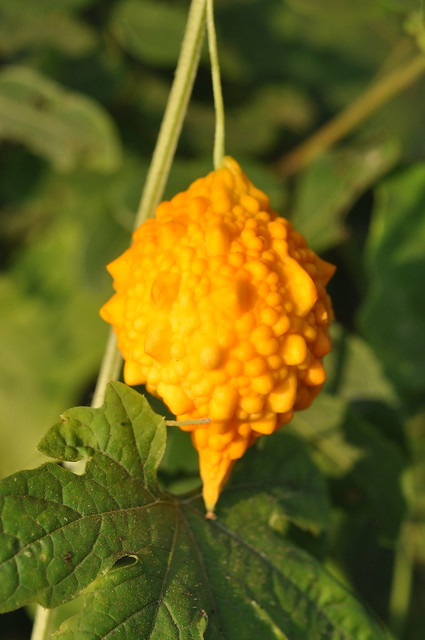The other day Andy, Jamie and I were out on a bike ride. Andy proceeds to make a joke to Jamie about the meaning of the Thai word for bicycle: chakkrayan (จักรยาน).
 |
| Bicycle: Wheels and Spokes |
Interestingly, I had less than half an hour earlier explained to Jamie that the way I learn (and remember) languages is by noting relationships between different words and phrases. I had commented, then, that I learned more from reading because I could see relationships in spelling that aren’t always apparent in the spoken Thai.
Andy’s comment about the meaning of the word chakkrayan triggered this analytical impulse in my brain.
The core syllable of the word chakkrayan is chak which has an atypical spelling in Thai (จักร) that comes from the Pali language.
So, within seconds, I’m thinking about other words that contain this syllable. The first one that came to mind was Thamacak (ธรรมจักร) or “Wheel of Dharma”
 |
| Dharma Wheel: Wheels and Spokes |
Do you see any similarities?
Wheels and spokes.
The next word that came to my mind was Khrittacak (คริสตจักร)
Khrittacak is the Thai word for church. I had never really thought about it that way before. The Thai word for church means “circle of Christ”.
What a beautiful picture.
A circle of believers connected to each other and each person connected to Christ who is at the center.
For some illustrations;
click here
As I shared this with Andy, our minds both took a a similar turn. Andy used the phrase “church in a circle”, an idea that had been floating my head for some time.
But before I go on further about the Circle of Christ, I should give a little background.
Christ’s Values vs. Cultural Values
The main task of our current work fits under a category our agency calls
capacity building. We are not so much directly involved in starting new churches as we are helping existing churches find a way to better reach out to start new ones.
As part of that process, one needs to look at what has been done, what is working, what isn’t working, what can be improved, etc. The special challenge in this is dealing with cultural differences. We are not here to make Western Christians and we aren’t trying to change the local culture insofar as it doesn’t conflict with the teachings of Jesus and scripture.
One of the dominant features of Thai society and many of the other cultures in this area is the concept of class or status. While class may not be as obvious here in Thailand as it is with the caste system in India, it is deeply en-grained. When strangers meet, they ask questions that may seem to be a bit intrusive to us Westerners (age, salary, job) in order to figure out their relative status so that they may know how to relate to each other. (For more on this subject see my post:
How Old are You?)
Unfortunately, this cultural value has been carried over into the church. And it fits well with the professional clergy model that was brought over by Western Missionaries. Mix this in with a little sinful pride, and we see some people who want to be called by the title
Pastor, or a local title
Ajan, but who don’t have a pastoral heart. They want the status that the title brings but not necessarily the job that goes with it.
This problem is certainly not unique to Thai culture.
An additional complication working with the Khmu people is that they are used to a family/clan society that has a strong and influential leader.
But what does the Bible have to say about this?
A couple of weeks ago, I was in one of our churches and the leader asked if I had anything to share. I got up, and they told me to go up and speak from the platform. Instead, I picked up one of the chairs that was on the raised platform in the front of the church and set the chair in the front center of the platform. I then said that I wanted the most important person in the church to come sit in that chair.
Fortunately, no one did. One person even mentioned that Jesus would be the one to occupy the chair.
I then had someone read from 1 Corinthians 12:12ff about the body of Christ. Next I asked them which body part was the most important and, via several examples, pointed out how physiologically each organ is interdependent on the rest. I carried this analogy over to the church. Paul make the point in the chapter that while we have different roles in the church, there is not one class of members that is better than or superior to others.
While we may say that we believe that we are equal brothers and sisters in Christ, do we act that way?
A common title for teachers and leaders in Thailand is
Ajan meaning
master or
teacher. This title is often applied to me, though I prefer to be called
uncle, a pronoun that merely gives respect due to age, or by the more generic pronoun
khun.
Just a couple of weeks ago, I was reading Matthew 23, and I was troubled by verse 8:
But you are not to be called rabbi, for you have one teacher, and you are all brothers.
The Thai word where the English has
rabbi is
than ajan. (“Than” is a pronoun meaning “you”).
Why is our most popular title a title that Jesus says we should not use? Are we letting culture triumph over Christ? I’m still not sure where to go with this.
Serving vs. Serving
Recently I was having to deal with an employee over performance issues. I was trying to be gentle about it and I wanted to see if perhaps his performance was related to his personal goals versus the nature of what he is employed to do. So I started with the question: “What is your career goal?”
His answer was: “I want to be a servant.” The Thai word he used was Phu Rap Chai.
Phu Rap Chai is an interesting word. While it means “a person who serves”, it is a common, self-effacing term used by those in Christian ministry to title themselves.
I found this employee's use of the term rather interesting, because we were actually paying him to serve and he wasn’t doing it. So I questioned him further and I found out that his idea of “serving” was being a paid preacher.
This concept of servant is not unique to this individual. While I can name many true servants of God in our churches here, there are also many “servants” who do not have a servant heart. Among young people, the main ministry people want to get involved in is preaching or being on a worship band. They want to serve in ways that put them in the front of the church. Few want to do things like teach children, cut the grass, or wash the toilets. (I'm sure there is plenty of this kind of feeling in my home country. I, too, wanted these kinds of roles in my younger years.)
This stands in stark contrast to how Jesus taught the concept of service by doing one of the lowliest jobs possible at the time: washing his disciples feet. (John 13:1-15)
Spiritual Gifts and Status Gifts
If an outsider were to visit one of our church services, and we were to ask him what he thought the most important positions in the church were, he would probably reply: “preacher and music leader.” The activities of preaching and listening to music probably take up the bulk of our church services. (As I write that I find that the term “church service” itself is a bit problematic as it implies we go to church to get served.) And we place the preacher and worship leaders up front on a platform. It is a church based on watching, not doing.
What is interesting, that if you go through the lists of spiritual gifts in Romans 12, 1 Corinthians 12, and Ephesians 5, you will find neither “preacher” nor “music leader”. It’s not to say that these aren’t valid roles. It’s just that they seem to take a dominant role at the expense of the exercise of the gifts that are listed.
Preaching vs. Teaching
I, personally, wonder about this whole preaching thing in church. When I look in scripture, I don’t see Jesus preaching to His disciples. He
preaches to the masses. He
teaches His disciples with words and by giving practical ministry experience. Jesus discipled his disciples.
When I was young, I longed to have someone disciple me. But our North American church didn't offer much of that. As I grew older I found myself of being asked to disciple others, but I felt ill-equipped to do so because I had not been through it myself.
Spectator Church
Going to “church” then becomes not much different that going to a football game. We cheer (sing songs) and watch (listen to the preacher) while the team up front does all the work. And if it is a good experience we go out saying “we won”, even though
we didn’t actually do anything.
The Circle of Christ
I’ve simplified the issues we are dealing with in our churches here quite a bit. And I still have way more questions than I do answers. But I’m thinking if we start with a foundation of khrittacak, it can help us move away from a spectator based church.
For several months now, I’ve been toying with the idea of “church in a circle” in my brain. What would it look like if we designed our church gatherings as a community of equals? Having everyone on the same physical level would be a reminder that we are all equal before Christ. Being in a circle would be a reminder that we all bring something to the church and we are equally participants--not spectators. Not that all have the same role. Not that all are equally spiritually mature. But all are essential members of the body of Christ.
I’ve thought of volunteering to “preach’ and then go and rearrange the chairs before I start. But unless the people change their mind about what the church is, something so radical would probably not be adopted as a regular practice. It would also be difficult to adopt because it would be viewed as odd compared to what other churches are doing.
In our Khmu villages where family and community are so important it would be nice to have churches based on a way of doing family and community life rather than reduced to going to a meeting to watch people “serve” once or twice a week.
I'm not an authority on any of these things. I still have more questions than answers. But I do like the idea of khrittacak-the Circle of Christ.
For some illustrations;
click here






















